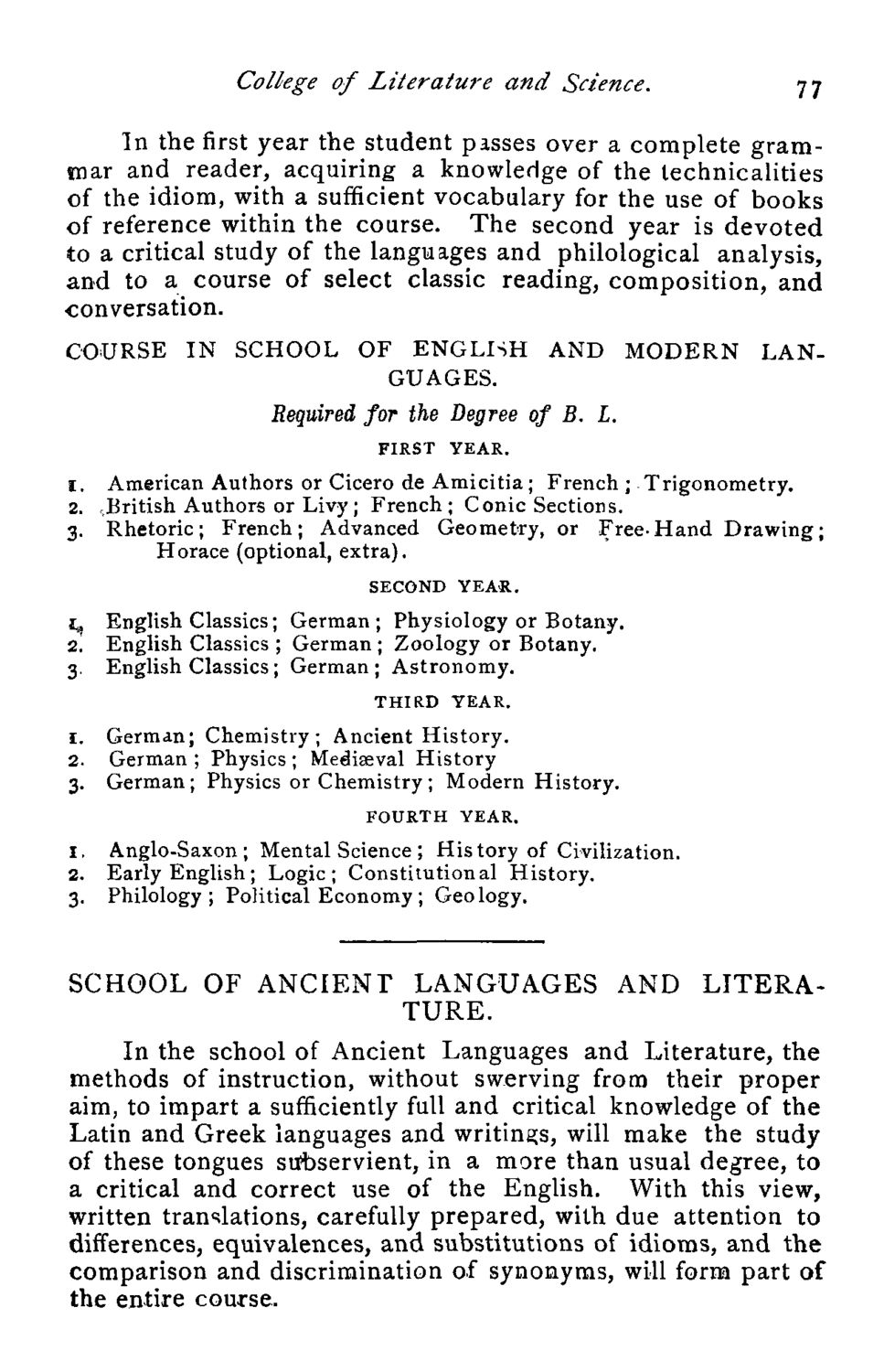Caption: Course Catalog - 1884-1885
This is a reduced-resolution page image for fast online browsing.

EXTRACTED TEXT FROM PAGE:
College of Literature and Science. 77 In the first year the student pisses over a complete grammar and reader, acquiring a knowledge of the technicalities of the idiom, with a sufficient vocabulary for the use of books of reference within the course. The second year is devoted to a critical study of the languages and philological analysis, and to a course of select classic reading, composition, and conversation. COURSE IN SCHOOL OF ENGLISH AND MODERN LANGUAGES. Required for the Degree of B. L. FIRST YEAR. 1. American Authors or Cicero de Amicitia; French ; Trigonometry. 2. .British Authors or Livy; French; Conic Sections. 3. Rhetoric; French; Advanced Geometry, or Free-Hand Drawing; Horace (optional, extra). SECOND YEAR. 1. English Classics; German; Physiology or Botany. 2. English Classics ; German ; Zoology or Botany. 3. English Classics; German; Astronomy. THIRD YEAR. 1. German; Chemistry; Ancient History. 2. German ; Physics ; Mediaeval History 3. German; Physics or Chemistry; Modern History. FOURTH YEAR. 1. Anglo-Saxon; Mental Science ; History of Civilization. 2. Early English; Logic; Constitutional History. 3. Philology; Political Economy ; Geology. SCHOOL OF ANCIENT LANGUAGES AND TURE. LITERA- In the school of Ancient Languages and Literature, the methods of instruction, without swerving from their proper aim, to impart a sufficiently full and critical knowledge of the Latin and Greek languages and writings, will make the study of these tongues subservient, in a more than usual degree, to a critical and correct use of the English. With this view, written translations, carefully prepared, with due attention to differences, equivalences, and substitutions of idioms, and the comparison and discrimination of synonyms, will form part of the entire course.
|